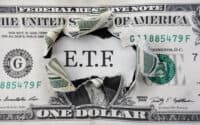 The IMF board decided that Israel’s central banker, Stanley Fischer, cannot be a candidate to become its new chief. He is 67 and the age limit for the job is 65. Dominique Gaston André Strauss-Kahn was nearly 63 when he was forced out of the job. It is not at all unusual for world leaders to be much older than 65.
The IMF board decided that Israel’s central banker, Stanley Fischer, cannot be a candidate to become its new chief. He is 67 and the age limit for the job is 65. Dominique Gaston André Strauss-Kahn was nearly 63 when he was forced out of the job. It is not at all unusual for world leaders to be much older than 65.
The IMF board may have decided to make its job fairly easy. It can focus on just two candidates–Mexico’s Agustin Carstens and French Finance Minister Christine Lagarde. Lagarde represents the old world when the IMF was dominated by Europe and the US. Carstens is the champion of emerging nations led by China, Brazil, and India. These countries occasionally argue that as their financial contributions to the agency grow, so should their power to manage the agency.
The IMF board may not care about Fisher’s age at all. It may be worried that Fisher would split the vote between countries backing Lagarde and Carstens, preventing a clear winner from emerging. What should be a majority decision could have been a plurality, at least a first. This would almost certainly have set off a rancorous battle between the emerging and developed countries. Tense negotiations would be required to settle the matter. That would, at the very least, cause hard feelings.
Lagarde may have already convinced some emerging world powers that she will make their interests her own. Other developing countries believe that she will be embroiled in the struggle to rescue Europe’s troubled countries which would probably require the BRICs to make larger contributions to the IMF eventually.
Fisher is gone. Carstens does not have sufficient support. Between them, Fisher and Carstens might have had enough votes to show that Lagarde should not receive the IMF crown. That chance is gone with the rejection of Fisher’s candidacy.
Douglas A. McIntyre
Is Your Money Earning the Best Possible Rate? (Sponsor)
Let’s face it: If your money is just sitting in a checking account, you’re losing value every single day. With most checking accounts offering little to no interest, the cash you worked so hard to save is gradually being eroded by inflation.
However, by moving that money into a high-yield savings account, you can put your cash to work, growing steadily with little to no effort on your part. In just a few clicks, you can set up a high-yield savings account and start earning interest immediately.
There are plenty of reputable banks and online platforms that offer competitive rates, and many of them come with zero fees and no minimum balance requirements. Click here to see if you’re earning the best possible rate on your money!
Thank you for reading! Have some feedback for us?
Contact the 24/7 Wall St. editorial team.



